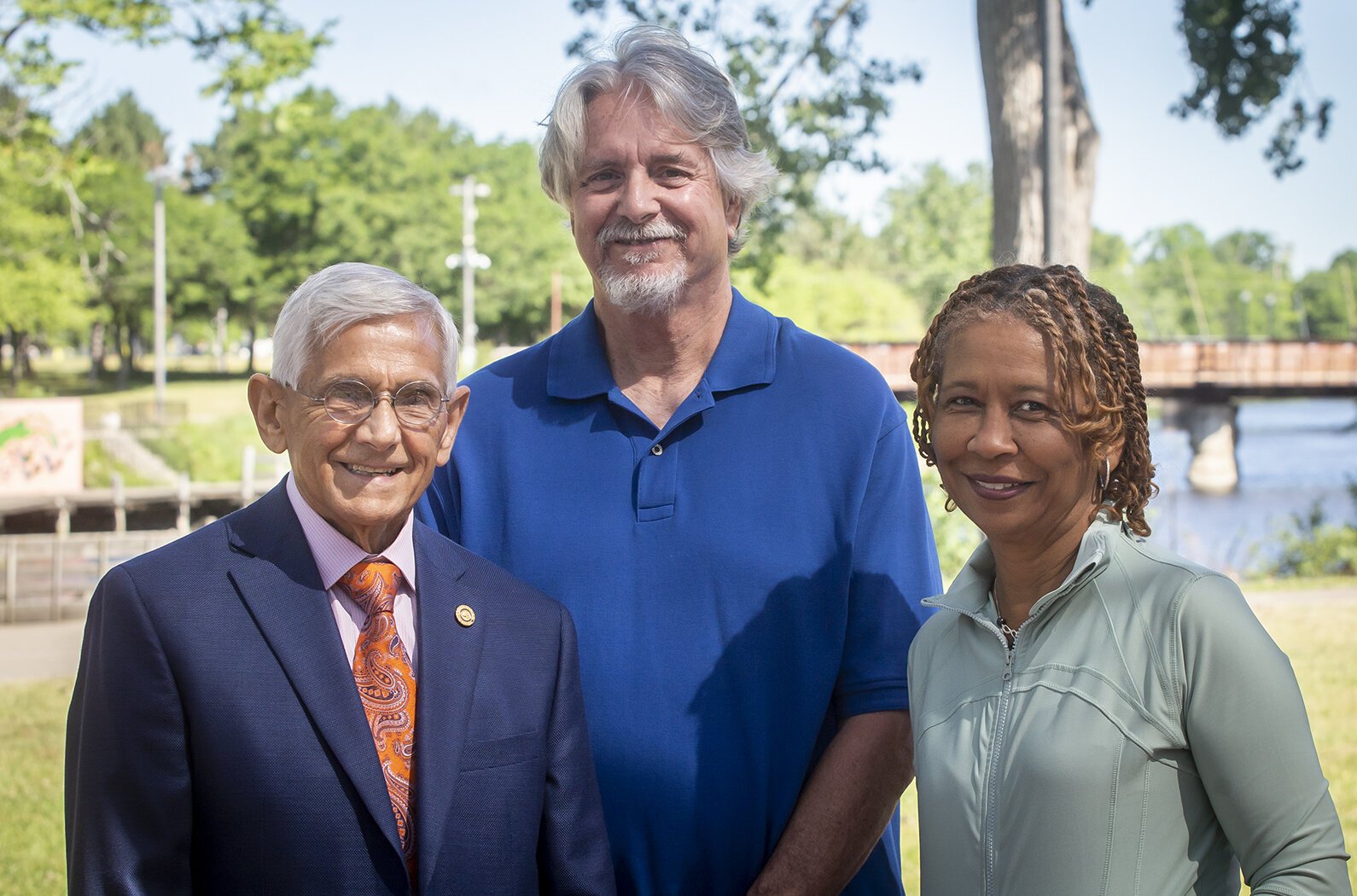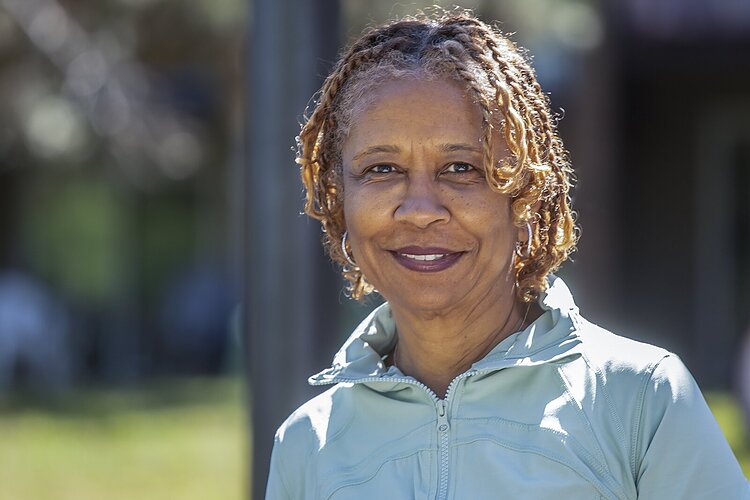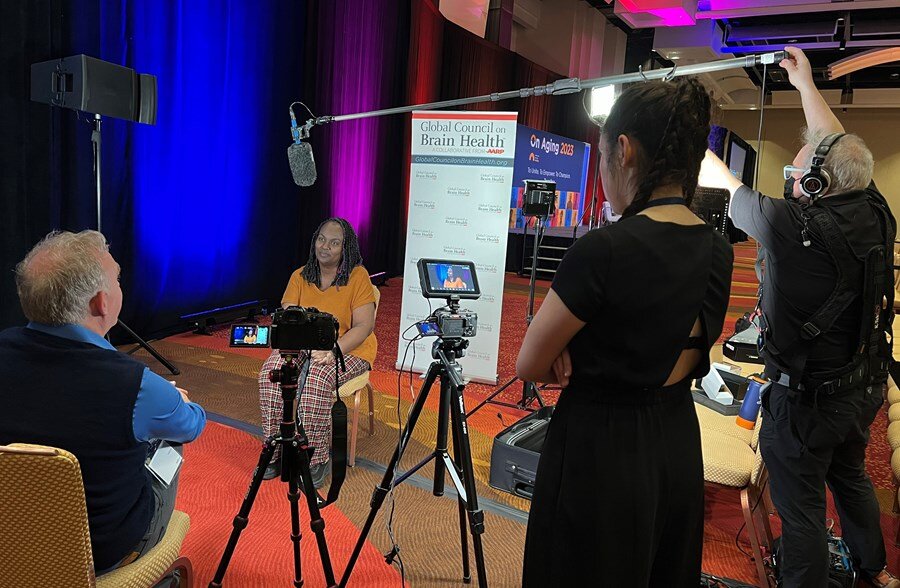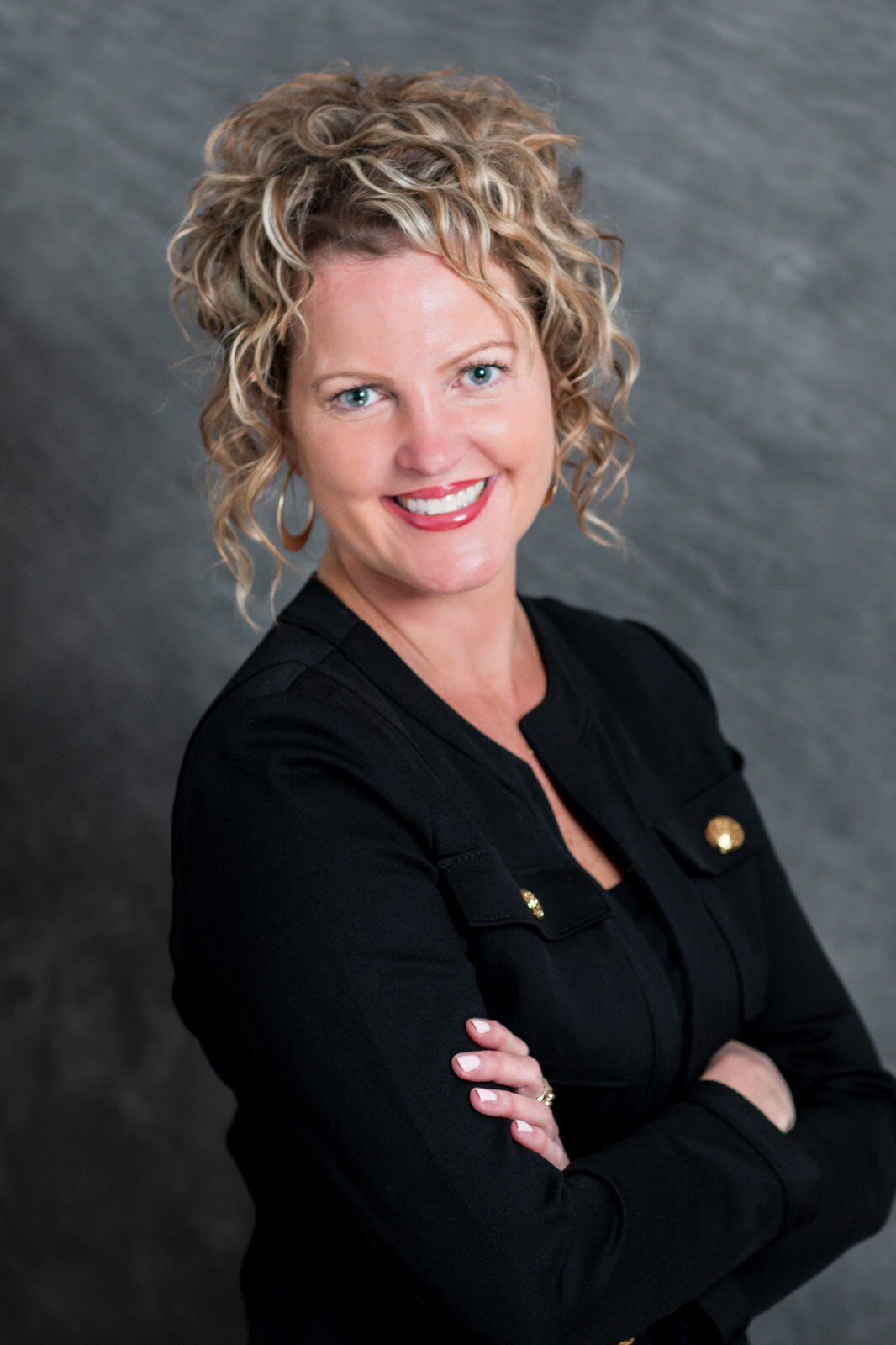
This text is a part of State of Well being, a collection about how Michigan communities are rising to handle well being challenges. It’s made attainable with funding from the Michigan Well being Endowment Fund.
Michigan is aging, and quick. The state has more than 2 million residents over age 60, representing about 25% of the state’s population, and 37% of Michigan residents are 50 and older. Michiganders 85 and older are the fastest-growing age group of all. The state additionally has one of many prime 15 oldest populations within the U.S.
 Scott Wamsley.
Scott Wamsley.
“We do have a vital older grownup population and calculations [show] that it’s rising,” says Scott Wamsley, director, Michigan Division of Well being and Human Companies (MDHHS) Bureau of Aging, Neighborhood Dwelling and Helps. “One of many issues that we need to do at MDHHS is have a sturdy continuum of community-based providers for older adults.”
The state already presents a number of providers for older adults, starting from the My Alternative waiver program providing residence care providers for these on Medicaid to vitamin packages like Meals on Wheels. However Wamsley says the state desires to make individuals more conscious of the providers which can be accessible. To perform that purpose as a part of Michigan’s State Plan for Aging, MDHHS employees are touring the state to assemble suggestions from older adults at senior facilities, neighborhood facilities, and Space Companies on Aging (AAAs).
“We additionally did a web-based survey of older adults, permitting individuals that may’t attend these public classes to offer us with details about service wants and providers that they’d wish to see within the state,” Wamsley says. “We additionally talked to key stakeholders inside state authorities and throughout our service supply community to ask, ‘What are the wants of older adults?’ and ‘How can we meet these wants?’”
MDHHS is not the one Michigan group discovering modern methods to fulfill older adults’ wants. Here is a take a look at a number of Michigan initiatives which can be working to create new age-friendly help programs because the state ages.
Age-friendly every part
AARP designates eight “age-friendly every part” domains of livability: out of doors areas and buildings, transportation, housing, social participation, respect and social inclusion, work and civic engagement, communication and data, and well being providers and neighborhood helps. The domains in the end help older adults aging in place of their properties and communities.
In June 2022, Michigan Gov. Gretchen Whitmer introduced Michigan’s Age-friendly Motion Plan, a blueprint developed with the MDHHS and AARP-Michigan to information communities via creating age-friendly-everything insurance policies and infrastructure.
“The entire Michigan communities the place AARP has a presence at the moment are a part of the AARP Community of Age-Pleasant States and Communities — Grand Rapids, Lansing, Jackson and others. Detroit’s approaching board, too,” says Paula Cunningham, director of AARP-Michigan.

 Paula Cunningham.
Paula Cunningham.
One barrier to aging in place is lack of entry to residence care providers. For one, Medicare and Medicaid don’t present ample protection for these providers. As well as, the scarcity of direct care staff — those that bathe, gown, bathroom, and feed individuals needing care — leaves the state businesses and neighborhood organizations offering these providers unable to fulfill demand.
“We’re working with the state now in making a profession path accessible for direct care staff,” Cunningham says. “Possibly they change into emergency medical assistants, [registered nurses], or [licensed practical nurses]. Having that type of profession path will entice more individuals to that subject.”
Reasonably priced housing is one other barrier to aging in place. As rents rise, some older adults can discover themselves priced out of properties the place they’ve lived for many years.
“To begin with, you have to have a residence to age in,” Cunningham says. “That is the place inexpensive housing is available in.”
For these discovering themselves with out a residence or unable to stay within the one they’ve, AARP-Michigan is selling the concept of “inexperienced home properties.” These small, family-like properties present care, equal to that in an assisted residing facility or nursing residence, for no more than 12 to twenty older adults.
“Throughout COVID, a lot of the analysis has proven that these smaller, more intimate settings had a a lot decrease price of COVID. They weren’t practically as lethal as a main nursing residence,” Cunningham says. “Residents have their very own apartment-like area inside a constructing. When cash is obtainable to construct a nursing residence, we wish to see more inexperienced homes versus that nursing residence.”
Age-friendly means dementia-friendly
Dementia is extremely widespread in older adults. Almost 200,000 Michiganders had Alzheimer’s, the commonest type of dementia, as of 2020, and one in three older adults will die with dementia. For individuals who stay with dementia, the challenges of the illness are sometimes compounded by a widespread notion that their life is basically over. Elwell resident Brenda Roberts calls that a “tragedy narrative,” and he or she’s spent the previous 4 years working to counteract it via the nonprofit Nationwide Council of Dementia Minds, which she co-founded.
Roberts was moved to motion after her husband Mark, additionally a co-founder of the group, was identified with vascular dementia in 2014. In search of assets and help, she was stunned by what number of discouraging narratives she encountered about dementia.

 Mark and Brenda Roberts with their canine Sophie.
Mark and Brenda Roberts with their canine Sophie.
“Everyone, docs included, go to end-stage pondering,” Brenda Roberts says. “They consider the particular person in that wheelchair staring off, you realize. They don’t seem to be serious about the individuals like Mark and all the opposite … individuals who have all this life to stay between the start of your prognosis to your finish of your life.”
Brenda Roberts was motivated to create constructive help and neighborhood for individuals residing with dementia and their caregivers, and to deal with individuals residing with dementia because the consultants on their very own expertise. She started internet hosting digital help teams for individuals residing with dementia, often known as Dementia Minds teams, in 2020. Demand for the teams grew shortly, and there at the moment are quite a few Dementia Minds teams that entice individuals from throughout the nation. A few of them cater to particular demographics, equivalent to males, Black individuals, or physicians residing with dementia. All of them are marked by trustworthy dialogue that does not gloss over the numerous challenges of residing with dementia, however that includes a beneficiant humorousness and celebrates individuals’ successes.
“It is like a help group on steroids,” says Ann Arbor resident and Dementia Minds group member Libby Ford, who was identified with a uncommon variant of Alzheimer’s in 2019. “There’s all the time anyone within the group that may present some laughter and a few enjoyable. And it is enormous simply to have the ability to be and speak with individuals.”

 Nationwide Council of Dementia Minds board member Monica Downer, who has been identified with an unspecified dementia, offers an interview.
Nationwide Council of Dementia Minds board member Monica Downer, who has been identified with an unspecified dementia, offers an interview.
Individuals residing with dementia are closely represented on the Nationwide Council of Dementia Minds’ board, and they’re usually its public representatives. Dementia Minds group members repeatedly current to numerous teams on their experiences, and a few of them are concerned in political advocacy work on the state and federal ranges. Dr. Arnie Beresh, a member of the Dementia Minds group for physicians, says the group offers individuals residing with dementia a probability to “voice our opinions and have exterior individuals take heed to what we really feel we want, what we want to want, what we wish the general public to know.”
“It would not simply make us nod our head sure or no as anyone is speaking to us,” Beresh says.

 Brenda Roberts stands behind a group of Dementia Minds group members (together with Mark Roberts at far left) at a public presentation.
Brenda Roberts stands behind a group of Dementia Minds group members (together with Mark Roberts at far left) at a public presentation.
The Nationwide Council of Dementia Minds is presently within the midst of creating a wants evaluation for individuals residing with dementia, assessing what info and assets they want of their first yr after prognosis. That might be a two-year challenge, funded by a grant from Michigan Well being Endowment Fund.
Mark Roberts says the Nationwide Council of Dementia Minds has vastly improved his life, and he desires the group to proceed doing the identical for others.
“We give hope,” he says. “That is one of the best factor. Individuals, we who’ve dementia, we want hope. We have to discuss it. In any other case, you are simply depressing.”
For more on the Nationwide Council of Dementia Minds and different Michigan-based efforts to reframe the way in which society approaches dementia, keep tuned for the second season of our spinoff podcast: Michigan’s State of Well being, coming subsequent month.
Michigan’s age-friendly well being programs
Within the transfer in the direction of age-friendliness, a lot of Michigan’s hospitals are additionally prioritizing the wants of the state’s rising older grownup population.
“We’re devoted to working each with native and statewide businesses to make sure that there are age-friendly efforts occurring in order that we will advance older adults’ continuum of life,” says Sarah Scranton, govt director of the Michigan Well being and Hospital Affiliation‘s (MHA) Keystone Middle.
 Sarah Scranton.
Sarah Scranton.
Michigan’s age-friendly hospital programs are implementing “The 4 Ms”: Know what issues to the older grownup; use age-friendly treatment; promote mentation by stopping, figuring out, and treating dementia, melancholy, and delirium; and guarantee protected mobility to keep up perform.
“Older adults have very complicated wants. It is vital that the medical subject prioritizes what’s vital to the affected person, not simply what they suppose could be flawed,” Scranton says. “It is actually all about listening to the affected person and taking what issues to them into consideration.”
MHA can also be partnering with Henry Ford Well being to create a caregiver navigation toolkit that might be applied inside hospitals throughout Michigan.
“That is the opposite vital piece after we take a look at age-friendly programs,” Scranton says. “How can we help the caregiver that’s caring for the affected person? We predict the toolkit goes to have a constructive influence for each the well being care suppliers, the caregiver who’s serving to the affected person, and, in flip, the affected person themselves.”
Age-friendly at residence: AAAs and PACE
One want that almost all of Michigan’s older adults have expressed is to have the ability to age in place in their very own properties.Serving to older adults to age of their properties additionally makes good sense. For one, the overwhelming majority of older adults need to keep of their properties versus residing in long-term care services.
“The ethical crucial is there as a result of that is what they need to do. And the fiscal crucial is there as a result of that is the least costly setting of care,” says Christine Vanlandingham, CEO of Area IV AAA. “As we take into consideration public coverage in our state and in our nation, offering help for older adults to have the ability to age in their very own properties is the fitting fiscal selection. In actual fact, for individuals who want nursing-home stage of care, care within the house is lower than 50% of the price of offering that care within the nursing residence.”

 Christine Vanlandingham.
Christine Vanlandingham.
Vanlandingham notes that in 2022, in Cass and Van Buren counties, the state of Michigan saved $46,986 for every of the 808 folks that used Area IV AAA’s providers to stay at residence as a substitute of in a facility. That’s a complete of practically $38 million in financial savings.
Area IV AAA helps individuals age of their properties by offering the knowledge they want to connect with assets and providers. Area IV AAA supplies a lot of these assets straight. Neighborhood-based organizations ship others.
“We assist individuals sew these collectively to create a plan of care that meets their very own particular person wants,” Vanlandingham says. “We ship out nurses and social staff to essentially perceive that residence dynamic and set a plan of care each for the person and for the caregiver to verify the entire household unit is being supported in the direction of success.”
Obtainable all through a lot of Michigan’s Decrease Peninsula, PACE packages additionally assist individuals age of their properties longer.
“PACE stands for Program of All-inclusive Care for the Aged. And it truly is simply that,” says Stephanie Winslow, govt director of the PACE Affiliation of Michigan. “Now we have a group of pros who present soup-to-nuts care for people to ensure that they’re able to stay safely in the neighborhood or wherever they name residence.”

 A PACE participant is helped onto an train bike on the LifeCircles Middle in Muskegon.
A PACE participant is helped onto an train bike on the LifeCircles Middle in Muskegon.
Nationwide PACE Affiliation statistics have proven that older adults who take part in PACE packages are safer of their properties than in an institutional setting.
“We are attempting to work with the legislature to acquire funding to have PACE be an choice for everyone in Michigan,” Winslow says. “When people are trying for care for their cherished one, it is laborious to navigate. It is type of a jungle. And it may be tough. There are a lot of boundaries.”
The PACE Affiliation of Michigan is also working with the legislature to take away enrollment boundaries, so it’s simpler for individuals to enroll in this system. Winslow notes that a new statewide cellphone quantity, (877) 2-MI-PACE, will join individuals to a stay operator who may help put them in contact with their native PACE program.
“Offering PACE providers is cheaper than conventional institutional care,” Winslow says. “So it does save taxpayers cash, and it is what individuals need. So it is a win-win.”
As a result of PACE presents providers within the residence in addition to day facilities and actions, household caregivers of individuals in this system are much less inclined to endure caregiver burnout.
“Caregivers have peace of thoughts after they depart and go to work throughout the day realizing that if there’s a fall or one thing occurs, they’ve a group that may be reached, that may assist,” Winslow says. “It’s all person-based care, what these particular person households want.”
Winslow advises older adults and their members of the family to inquire about PACE packages of their county sooner moderately than later.
“It is laborious to make a good choice whenever you’re in disaster mode,” she says.
Well being literacy is an age-friendly important
Well being literacy is one other vital part of age-friendliness. Well being literacy refers to a particular person’s skill to search out, entry, and perceive health-related info. It doesn’t make the affected person accountable for understanding care directions and medical recommendation, however moderately asks the supplier to verify the affected person understands. This may be finished via sharing printed supplies or movies which can be produced in lay language with photos to help comprehension. Nevertheless it’s even more efficient via conversations that keep away from medical jargon and terminology that stop the affected person from greedy what they should know to handle themselves.
“As you age, you are inclined to see a rise in complexity in each aspect of your life. You are inclined to see extra situations or diagnoses, and also you are inclined to see more medicines or polypharmacy,” says Janis Rood, PACE Southeast Michigan director of pharmacy and built-in medical providers. “Older adults might not even perceive what we’re attempting to inform them, not to mention make choices primarily based on that for nonetheless a few years they’ve left. It is simply so vital that we take this under consideration. It presents dignity. And it is the one method to offer high-quality, knowledgeable care for our older adults.”
Greater than 43 million adults within the U.S. can not learn, write, or do fundamental math above a third-grade stage. For individuals with low literacy ranges, well being literacy turns into even more vital.
“Individuals with low well being literacy use emergency providers more usually, which disrupts the continuity of care. They’ve greater well being care prices, they usually use fewer preventive providers,” says Laurie Arora, PACE Southeast Michigan vice chairman of public affairs, philanthropy, and organizational improvement. “On the whole, low well being literacy means a greater mortality price.”
PACE Southeast Michigan trains employees members in any respect ranges, from drivers to physicians, in the way to create well being literacy for PACE individuals. They learn to respectfully ask individuals to relay the knowledge again to them to verify it was understood. Straightforward-to-comprehend supplies, describing nearly each situation affecting older adults, can be found all through PACE day facilities.

 Sarah Milanowski, advertising and communications specialist with LifeCircles PACE, accompanies a PACE participant.
Sarah Milanowski, advertising and communications specialist with LifeCircles PACE, accompanies a PACE participant.
“We deal with offering high-quality care and speaking with language that our individuals can perceive to allow them to make choices for themselves,” Arora says. “Now we have well being literacy champions at every of our facilities who function a useful resource for individuals and for employees. And we have partnered with Henry Ford Well being to make use of their health-literate brochures on sure continual sicknesses.”
Well being literacy initiatives have had extraordinarily constructive outcomes at PACE Southeast Michigan. For one, racial disparities amongst individuals with diabetes have been eradicated.
“Greater than that, we really improved medical outcomes considerably in each diabetes management, decreased emergency division visits, and hospitalization,” Rood says. “Simply by partnering with our individuals, taking the duty of constructing positive they’re understanding, and serving to them to make knowledgeable choices about their care elevated fairness within the supply of care and improved medical outcomes throughout each single particular person in our neighborhood.”
To study how one can assist your Michigan neighborhood change into age-friendly, go to AARP Community of Age-Pleasant States and Communities.
Estelle Slootmaker is a working author specializing in journalism, ebook modifying, communications, poetry, and youngsters’s books. You possibly can contact her at Estelle.Slootmaker@gmail.com or www.constellations.biz.
Patrick Dunn is the challenge editor of the State of Well being collection, host of the Michigan’s State of Well being podcast, and managing editor of Focus.
AARP images by Roxanne Frith. Christine Vanlandingham photograph by Taylor Scamehorn. PACE images by Pat ApPaul. All different images courtesy of the topics.




